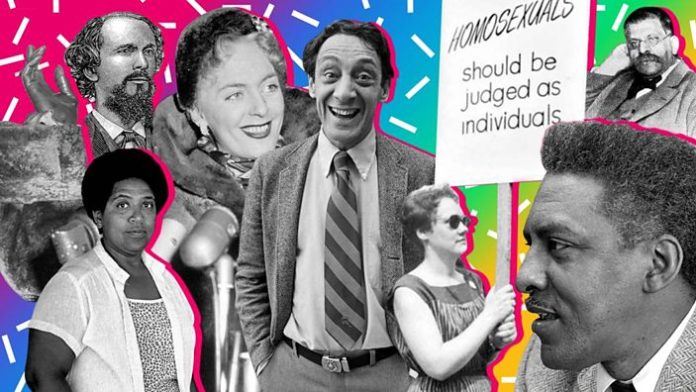Everything is cancelled. Pride celebrations, the Olympics, dining out on a Saturday night. We are living through an unprecedented time, and history books will be writing about this period for decades and generations to come. No matter what happens, people will look back on this era for lessons in how to handle the next big crisis, lessons on what to do and what to avoid. Hopefully people will also look back on this time as a beacon of perseverance and creativity. A time when pride celebrations went virtual, when TV shows moved from studios to living rooms, when we all realized just how important human interaction is in our lives.
But thoughts of the future are hardly comforting for those of us stuck in the present. The future hasn’t happened yet. We can’t predict exactly what we will face. It’s very easy to imagine the worst, especially considering how horribly much of the U.S. is handling the pandemic.
So, instead, why not look to history for a little comfort? History is finished. We know the events and the people and most of the reasons why. History guides us, entertains us, and grounds us. It shows us that we’re not alone.
LGBTQ history is rich in education. It’s also rich in hope and joy. And we need all of those things right now.
In the very first issue of this newspaper, in January 1976, there were a fair share of frustrating stories. But there were also surprising, delightful stories too.
Dave Kopay, a former NFL football player, came out of the closet, an incredibly rare act for an athlete in those days. The Metropolitan Community Church got approval to work with gay prisoners and parolees to help them adjust and cope. One thousand people attended the Gay Academic Union conference to discuss LGBT issues in academia. And the plethora of advertisements showcased a huge swath of gay restaurants, jewelry stores, clubs, bookstores, and theaters. Even 40 years ago our community was vibrant and proud.
But we were even more than that. Also in the first issue were articles about the next round of lobbying for a gay rights bill in City Council, about the activist group Dyketactics! rallying against the homophobic Civil Disobedience Squad, about the burgeoning political power of LGBT voters. We were fighting for our rights, much like today.

Whether in entertainment, politics, or business, our community worked against the odds back then to bring us all a better life. If we could persevere in 1976, we can persevere today. If we could find joy in 1976, we can find joy today. And if we could look to a better future in 1976, we can look to a better future today. Even in the most bleak of circumstances, even under impossible odds, we can always find reasons to be hopeful. Our elders did it. We can too.
